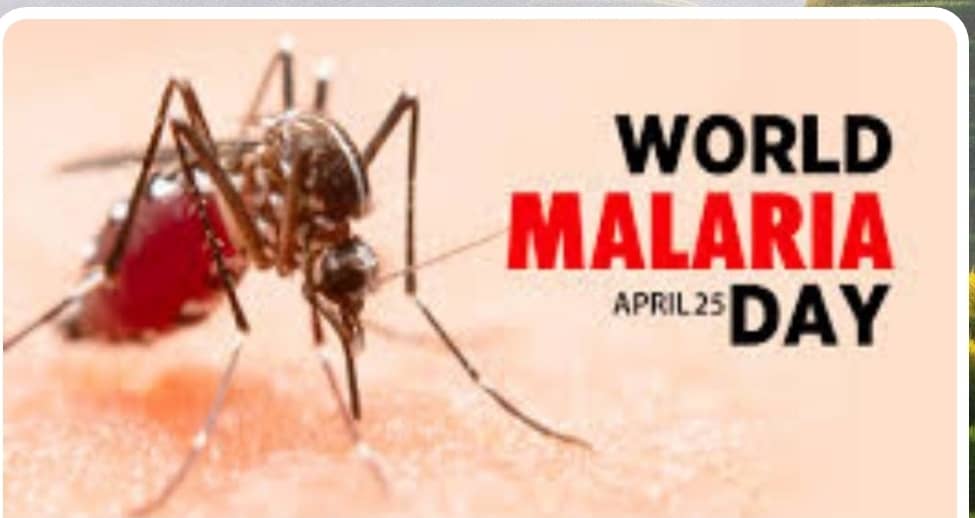By Saidu Jalloh, Reporter
The National Malaria Control Programme (NMCP) marked World Malaria Day 2025 with a national press briefing at the Medical Stores in New England Ville, Freetown, emphasizing the urgent need for renewed commitment in the battle against malaria.
Under the theme “Malaria Ends with Us: Reinvest, Reimagine, Reignite,” the event served as a rallying cry for political will, community leadership, and innovative strategies to combat this persistent health challenge.
Dr. Harold Thomas, Health Education Programme Manager, chaired the ceremony and stressed that the burden of malaria is a shared responsibility. He highlighted the importance of rethinking strategies, strengthening partnerships, and reigniting efforts at both global and local levels. Dr. Thomas acknowledged advancements in diagnostics, treatments, and the introduction of malaria vaccines and digital health tools. However, he also pointed out significant challenges, including health system underfunding, climate-related transmission patterns, and drug resistance. Malaria continues to claim over 600,000 lives globally each year, predominantly affecting children under five.
“A child with malaria, if untreated, can die within 72 hours. That’s how serious it is,” Dr. Thomas urged, encouraging families to seek timely diagnosis and treatment at health facilities.
WHO Representative Dr. Ganda echoed this urgency, emphasizing the need for targeted action to protect vulnerable populations. In 2024, Sierra Leone recorded over two million malaria cases, making it a leading cause of illness and contributing to nearly 20% of child mortality. She affirmed the NMCP’s commitment to updating its strategic plan to address new challenges and opportunities, with a target of eliminating malaria by 2030.
Matron Irene M. Sesay, Head of Malaria in Pregnancy at the NMCP, provided an update on the malaria situation in Sierra Leone. She reported that malaria remains endemic with stable year-round transmission, particularly affecting children under five and pregnant women.
Key Highlights from NMCP’s 2024 Report:
- Malaria case reporting exceeded expectations, achieving 103.8% of the target.
- 97.2% of suspected malaria cases were tested in public health facilities.
- 91.1% of confirmed cases received treatment, though community testing and treatment coverage lagged at 58.4% and 86.3%, respectively.
- 363,738 insecticide-treated nets were distributed, reaching 78.2% of the target.
- 78.3% of pregnant women received three or more doses of preventive malaria treatment (IPTp).
Despite these achievements, Matron Sesay highlighted ongoing challenges, including funding constraints, reliance on donor support, weak surveillance systems, and poor community health-seeking behavior, which hinder progress toward the NMCP’s strategic goals for 2025.
The National Malaria Elimination Strategic Plan (2021–2025) outlines ambitious goals for a malaria-free Sierra Leone, focusing on aggressive prevention and control strategies, including:
- Strengthening data systems and surveillance.
- Enhancing case management and logistics for supplies.
- Expanding community health worker training and support.
- Scaling up social behavior change communication.
- Leveraging digital tools for program delivery and monitoring.
Progress is evident, with the incidence of malaria among children under five dropping from 754 per 1,000 in 2023 to 603 in 2024, and inpatient malaria deaths decreasing to 88 per 100,000.
Partnerships and resource mobilization remain critical, with the NMCP relying on funding from the Global Fund, USAID/PMI, WHO, UNICEF, and other Roll Back Malaria partners. Recent disruptions, including a stop-work order from USAID PMI, have underscored the need for increased government support and public-private partnerships. Matron Sesay also highlighted the importance of establishing an End Malaria Council and expanding community outreach to ensure the sustainability of malaria control initiatives.
As Sierra Leone joins the global community to commemorate World Malaria Day on April 25th, health authorities are urging all stakeholders—government, private sector, donors, communities, and individuals—to play their part in the fight against malaria. With continued investment, innovation, and unity of purpose, a malaria-free Sierra Leone is within reach.
For more information, contact Daily Scope Newspaper at dailyscopemedia@gmail.com.






